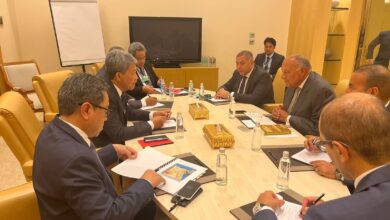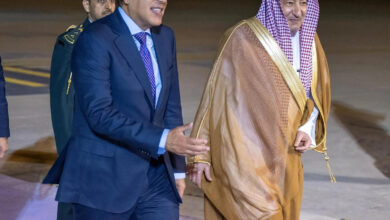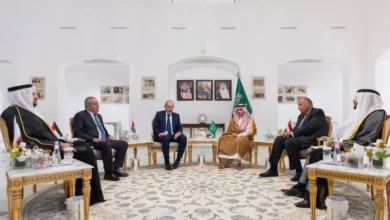
Ahmed Salam
.. former Egyptian media advisor in China..
Asian affairs expert
Egypt is considered one of the first countries to respond to the “Belt and Road” initiative, and it was also the first Arab and African country to recognize the new China. Relations between Egypt and China have consolidated and taken root, through the ancient Silk Road and the Belt and Road Initiative, in addition to Egypt’s belief and leadership in the importance of integration between initiatives. Various development, especially the Belt and Road Initiative, which are consistent with national development priorities and the objectives of “Egypt’s Vision 2030” and the African Development and Modernization Agenda 2063.
Ten years ago, in September and October 2013, Chinese President Xi Jinping put forward the Belt and Road Initiative during his visits to Indonesia and Kazakhstan. The “Belt and Road” initiative, which means (the economic belt of the Silk Road and the Maritime Silk Road for the twenty-first century), is one of the most important global development initiatives in the twenty-first century, and it is a development strategy within the framework of “development diplomacy” pursued by China. Based on the principle of “mutual benefit”, interdependence, cooperation and common interests among all countries of the world, it aims to build a network of trade and infrastructure linking Asia with Europe and Africa along the ancient trade routes of the Silk Road.
In this context, Egypt was proactive in its interaction with the initiative. We find that Egypt has presented the economic zone of the Suez Canal to the world as a logistic and economic center that contributes strongly and effectively to the development of international navigation, enhances global trade freedom, and opens up broad investment horizons in the fields of transport, energy, infrastructure and commercial services. To be the axis of the Suez Canal as a commercial, economic and humanitarian link, integrated with the “Belt and Road” initiative, and linking it with Africa. President Abdel-Fattah El-Sisi has confirmed that Egypt’s development priorities are consistent with the “Belt and Road” initiative, which aims to enhance trade and economic cooperation between the countries of the initiative, including Egypt, and to strengthen coordination among the member states of the initiative and work to increase interest in projects to connect facilities between these countries, and implement Policies that contribute to increasing trade and financial integration, in addition to increasing communication between peoples by promoting cultural exchange programs between the countries of the region. There is no doubt that the advanced level reached by Egyptian-Chinese economic relations is a true translation of President Sisi’s vision, which is based on transforming all international endeavors and relations in the interest of the Egyptian people.
Egyptian-Chinese relations have witnessed a great boom in recent years, as many results and positive energy brought by the initiative for economic and social development in Egypt appeared on the horizon, especially in the framework of its connection to “Egypt’s Vision 2030”. For example, on the economic and investment level between Egypt and China within the framework of the Belt and Road Initiative, we find that there are many numbers and facts. Whereas, Chinese investments in Egypt focused on industrial projects at a rate of (55%), in the field of construction, it reached (20%), and in the services sector, it reached (19%).
Both Egypt and China are keen to work within the framework of building the bond of common destiny between them, as well as work to enhance coordination to implement many projects within the framework of the China-Africa Cooperation Forum, as well as joint work for Chinese-Arab cooperation, and both Cairo and Beijing are working to deepen cooperation in Building the “Belt and Road”, as well as advancing the completion of the railway project for the electrified train “Al-Salam – Administrative Capital – Tenth of Ramadan”, which is being carried out by the Chinese “AVIC” company at a cost of $ 1.2 billion, funded by a loan from the Import and Export Bank of China to be paid within 20 years, including grace period years. AVIC undertakes the implementation of communications, signaling and control works, in addition to manufacturing and supplying trains for this project, while five Egyptian companies undertake the implementation of civil and construction works and the installation of rails and rails. Which contributed to the establishment of the Chinese Architecture Company (CSCEC), and major cooperation projects between the two sides in the Economic and Trade Cooperation Zone (TEDA) in the Gulf of Suez region, which is a model project for cooperation in building the “Belt and Road”. Among the most prominent cooperation projects, we mention the sectors of manufacturing, construction, information technology, and oil and gas extraction. Many companies participate, such as Sinopec Petrochemical, Jushi Fiberglass, New Hope Group, Zhenhua Petroleum, and XD-Egymak Company. (XD-EGEMAC) and the Media Group Limited, as well as international companies from Egypt, the Emirates, Canada and other countries.
Both Cairo and Beijing seek to expand cooperation in the fields of investment, financing, transition towards green energy, green industries, low-carbon technology and space, and search for new areas of cooperation. Fortunately, given Egypt’s moderate weather, antiquities, and civilization, China has included Egypt on the list of top countries for foreign tourist destinations for Chinese citizens, which means that the number of Chinese tourists will increase in the future. The volume of Chinese investment in Egypt was 560 million US dollars in the fiscal year 2021-2022, an increase of 16% year on year, representing 6.3% of net foreign capital inflows to Egypt.
The number of Chinese companies registered and operating in Egypt has reached more than 1,500 companies, with investments approaching one billion US dollars, and Chinese investments in Egypt provide approximately 30,000 direct job opportunities for Egyptians. Chinese investments are distributed in a number of sectors, including 702 companies in the industrial sector, 432 companies in the service sector, 70 companies in the construction sector, 79 companies in the communications and information technology sector, 47 companies in the agricultural sector, and 6 companies in the tourism sector. The Central Bank of Egypt also concluded a currency swap agreement with the People’s Bank (Central) of China in December 2017, with a total amount of 18 billion Chinese yuan against its equivalent in Egyptian pounds.
An important study conducted by a team from the National Planning Institute in Egypt monitored that direct Chinese investments in Egypt have been clearly increasing since 2013, the year that witnessed President Xi’s announcement of the “Belt and Road” initiative that Egypt joined in 2014. The study found that about 70.6% of Chinese investments in Egypt are geographically concentrated in the Suez Governorate, as it is located within the economic zone of the Suez Canal, in which the foreign investor enjoys many investment incentives. At the level of sectors, extractive activities, specifically the oil and natural gas sector, accounted for 33.7% of these investments, followed by the industrial sector with 26.2%, which are distributed in sub-fields, such as: engineering, spinning and weaving, chemicals, building materials, food, minerals, Medicines, wood.
In conclusion, I hope that, in light of the transformations and global situation in which China occupies an important position in the new multipolar world, and in which China represents a powerful country in the new era, China will complete its path that began with the Saudi-Iranian reconciliation, and also seek to undertake mediation initiatives to repair the rift between Some countries, including important and crucial issues such as the Ethiopian Dam, which greatly affects Egypt and its people, in light of Egypt’s participation in the Belt and Road Initiative, as well as in the context of its and Ethiopia’s recent accession to the BRICS group, in addition to its contribution to working to resolve conflict issues in Africa. The Arab world and the issue of the Israeli occupation of Palestine.
He took this opportunity to congratulate the Chinese government and people on celebrating ten years of the important international Belt and Road project.
Sallamahmed2@gmail.com



